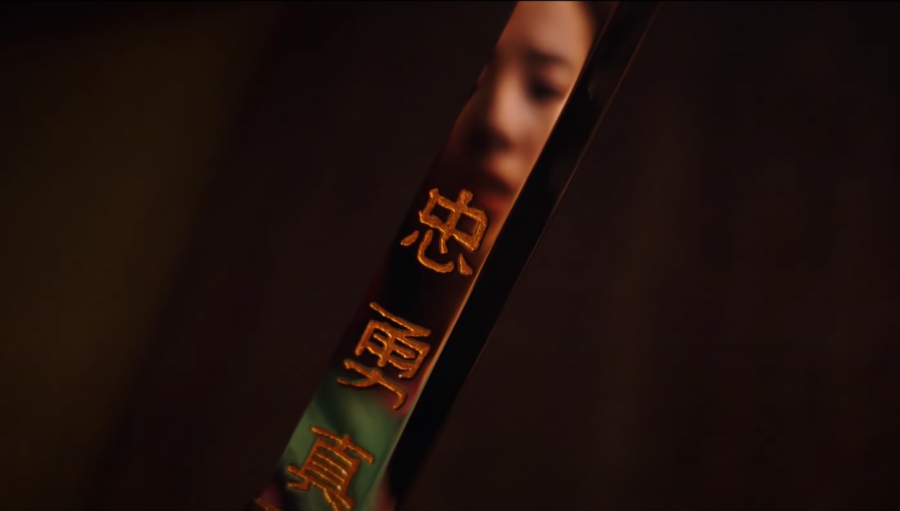‘Mulan’ — more than just a Disney princess story
“Who is that girl I see staring straight back at me? Why is my reflection someone I don’t know?” That’s what the 1998 animated “Mulan” should be asking Disney’s new live-action rendition of the classic tale. With main actress Yifei Liu’s terrible acting skills and a failed attempt to turn “Mulan” into a Disney princess movie, Disney’s newest production does not deliver.
The story of Hua Mulan, an empowering tale of courage and female power, guided me through my childhood. I was determined to follow Mulan’s path and stand my ground against the only evil forces that I faced — adolescent boys.
Many thought that I would be excited when Disney announced its live-action version of the tale, but I couldn’t help but doubt that a western company — with its lack of knowledge for eastern culture — could accurately portray the story I had fallen with love with as a child.
The 2020 movie version of “Mulan” tells the story of a young girl, who voluntarily takes her disabled father’s place in the army disguised as a male in order to save him from the cruel fate of death on the battlefield. Through her intelligence and courage, she was able to overcome the evil forces of the Rouran army and the witch and save the life of the emperor.
Despite being skeptical at first of Disney’s ability to successfully portrait the tale of Mulan, I was excited about the movie because of its cast. Mulan is played by Yifei Liu, known as the “fairy sister” in China because of her ethereal beauty. Other cast members include Donnie Yen, Jet Li and Gong Li, all of whom are A-list celebrities in China. Therefore, I had high expectations, but the movie didn’t come close.
Ultimately, “Mulan” delivered a standard Disney live-action production, and tried to present an accurate historical context. However, there are two reasons that make it unbearably boring, one being Liu’s— to phrase it as nicely as possible — questionable acting skills. The second is the failed attempt to transform “Mulan” into a Disney princess movie.
I have always thought Liu was an amazing actress due to her high reputation in China, but trust me when I say that in this movie, she had zero expressions: her face stayed the same throughout the entire movie like a block of wood. As a young girl leaving home for the first time and heading to the battlefield, Liu doesn’t portray Mulan’s feelings of fear and uncertainty at all. Even when the witch died for Liu’s Mulan, she didn’t shed a single tear — neither did I.
I claim myself to be an emotional person, and I cry 99.9% of the time when I watch a movie. I cried during “Kung Fu Panda,” “Coco” and even “The Kissing Booth 2.” But it seems like “Mulan” is in the 0.1% of movies that didn’t make me shed my precious tears.
Despite Liu’s success in making this movie as boring as possible, it is clear to me that the producer tried to accurately portray Chinese culture and the historical context of “Mulan.” And they did do that — the movie’s costumes, makeup and architecture are an accurate visual representation of the time period, and the film even goes so far as to embody some of the most important Chinese values: devotion to country and family.
But there’s one big caveat: In a contrived attempt to incorporate the stereotypical Disney princess theme of individualism, the producers added a series of implausible scenes. In one, Mulan’s male persona, Hua Jun, dies but Mulan herself lives on. This confusing scene is supposed to be one of female empowerment — Mulan accepts her identity as a female rather than maintaining a male facade.
Confused? Me too. Even if you watch the movie, you still probably won’t understand. Such unnecessary scenes only interrupt the logic of the storyline. Disney’s effort at teaching young girls to embrace who they are is definitely a worthwhile one, but the execution falls short, leaving the audience bewildered and struggling to keep up.
I am not alone with these criticisms. The vast majority of Chinese wished they had not wasted that extra 30 yuan to buy it. On a popular Chinese movie rating website, the movie received a whopping 4.9 out of 10 despite its massive $200-million budget and famous cast. The main point of dissatisfaction was the belief that the movie distorted and even defamed Chinese culture.
Many believe Disney’s production westernized the story of Mulan. Being deeply influenced by Confucianism, Chinese people believe in the qualities of being restrained and reserved. As a result, Chinese audiences generally look for subtler character development and nuanced emotions, which can be better presented by slow-paced production. Rather, Disney presented Mulan in a fast-paced, action-packed storyline that glazed over the accurate representation of the original story in favor of battle scenes and special effects.
So let me tell you my version of Mulan. Mulan wasn’t admired for winning a single battle that changed everything; she was admired for staying on cruel battlefields for more than 10 years to serve her country. Mulan wasn’t admired for being the hero that single-handedly saved the universe; she was admired for being the unyielding pillar that helped all of her soldiers win the war together. Mulan wasn’t admired for being born with superior strength and abilities; she was admired for being a normal person who, through hard work and sacrifice, brought honor to her family. For many audience members, Disney’s fantastical alterations felt especially offensive in “Mulan” because of how central the story is in Chinese historical and cultural heritage.
This isn’t just another Disney princess story; “Mulan” is the 1,500-year-old legacy of the Chinese people — a constant reminder, generation after generation, of the importance of filial piety and patriotism. I do recognize that taking on such a well-known story and transforming it into a Disney movie for kids is a great challenge, but I couldn’t help missing the crucial elements of the original story of Mulan.
While I appreciate Disney’s effort to accurately portray my culture, it pales in comparison to the story I was raised with. I had hoped that “Mulan” would be the window for western audiences to peek into the fascinating world of Chinese culture, but it wasn’t quite that window. Maybe, though, it’s just enough to capture the world’s curiosity.





Xiangxin | Sep 13, 2020 at 10:05 pm
Good criticism.
Ella | Sep 13, 2020 at 9:38 pm
Attractive comments on this movie! Keep going on passing real Chinese cultures to western people and let the world better know our China!